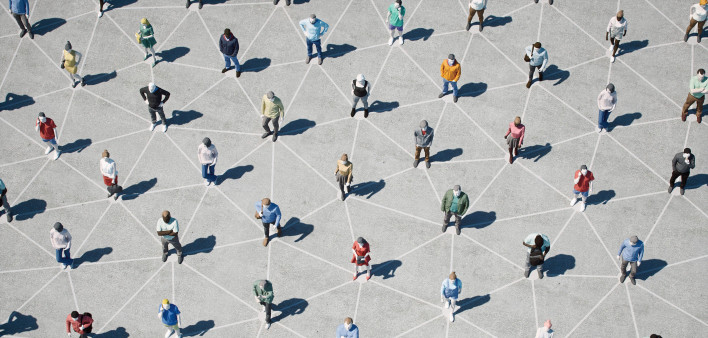From the first time I heard the phrase “social distancing,” it gave me a headache. I knew something was not right, but the words kept flowing downriver. That phrase is eating the spirit of the community, making us doubtful, afraid and scared.
Instead of “social distancing,” we should be using the phrase “physical distancing.” We have to rethink the concept. We have to allow the hope from that new wording to go deep into our conscious and subconscious mind.
Yes, there is the reality of COVID-19, the disease caused by the new coronavirus—the constant picture of death on television and the flood of information about this pandemic every five minutes, so much so that mental health experts recommend we check the news only once or twice a day.
However, humans have always been social. Throughout history, we created many ways to communicate—smoke signals, telegraph, telephone, social media. Thanks to the internet and high-speed networks, smartphones have almost become extensions of our hands.
For most of our time on earth, being together physically was being social. Social media has forever expanded that definition. We need to embrace establishing and maintaining connection through social media more than ever.
Music and art careers, even revolutions, have been fueled by social media. Having thousands of friends on Facebook or followers on Twitter and Instagram isn’t necessarily a fake thing. For many of us, having a healthy personal life includes an active social media life.
Online, we can help people, especially those who are isolated or lonely. Through videos, pictures and words, we can stay in touch, even fall in love. We can chat with people we’ve never met in person or with those we’ve known for a good while. We can be social, even if we are far away.
Society is the sum of people living together in a more or less ordered community. Social media has created communities of all types. We can feel supported online. We can express ourselves. We can even educate ourselves with webinars and online universities.
When epidemiologists coined the phrase “social distancing,” they didn’t realize how much harm those words could have on our communities. In this time of the COVID-19 crisis, physical distancing is necessary, but we need to be socially closer than ever.
“I would argue that what we are doing right now is physical distancing, not social distancing,” said Sandro Galea, MD, MPH, DrPH, an epidemiologist and a professor at Boston University School of Public Health, during a COVID-19 tele–town hall.
“We are creating physical distance between us to limit the spread of the virus,” said Galea. “But we should be doing that in the same breath as we are maintaining our social connections and sense of community and common sense of purpose.”
The World Health Organization agrees. The group is now advocating against the use of the phrase “social distancing,” instead favoring the use of the phrase “physical distancing.” We must advocate for everyone to start using the latter term.
Some officials are already listening. In a COVID-19 webinar, Philip Peters, MD, of the Centers for Disease Control and Prevention, repeatedly referred to physical distancing. He also emphasized the importance of staying socially close to each other.
I hope we all rethink the concept. Don’t allow your fear to make you act hostile. Be kind. Find ways to keep supporting one another.
As an HIV long-term survivor, I can tell you one thing I learned while fighting that pandemic: We are all in this together!







Comments
Comments